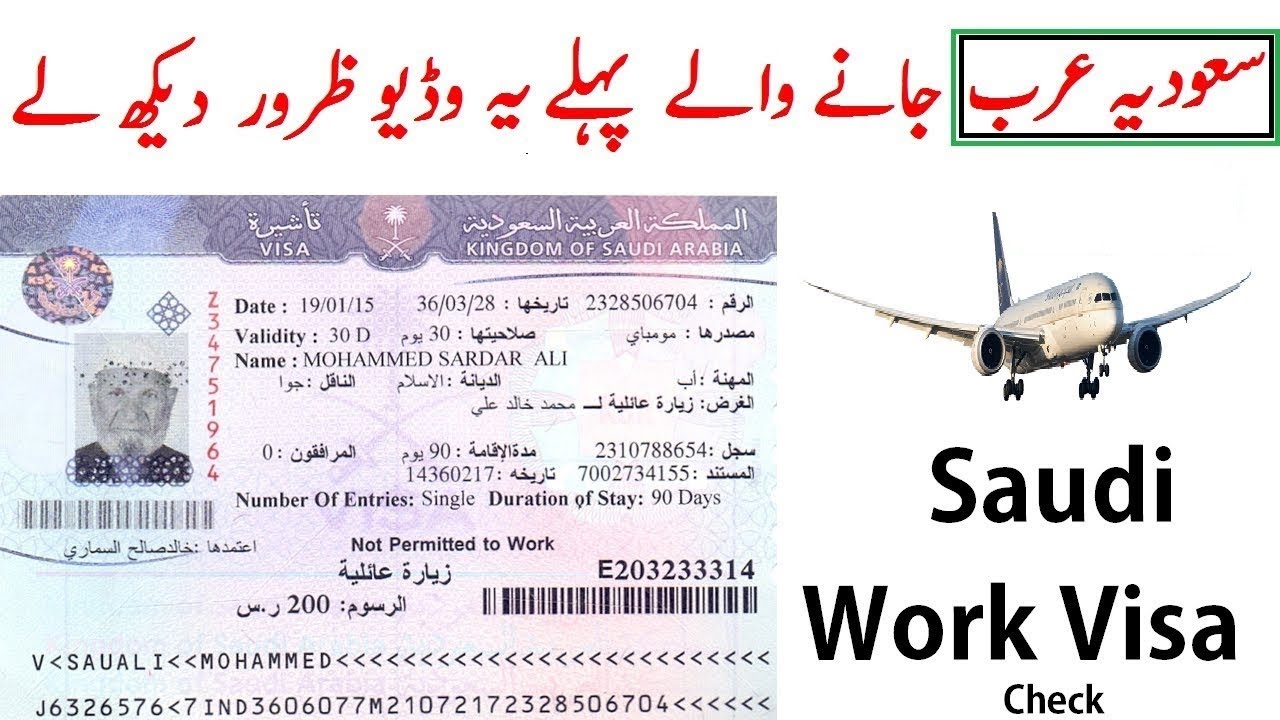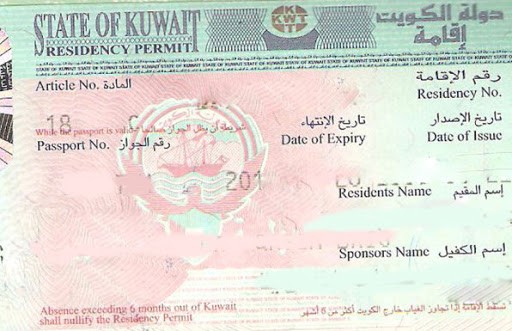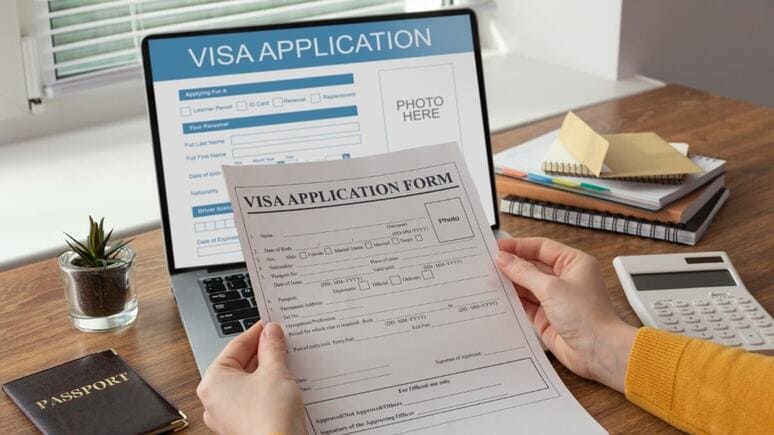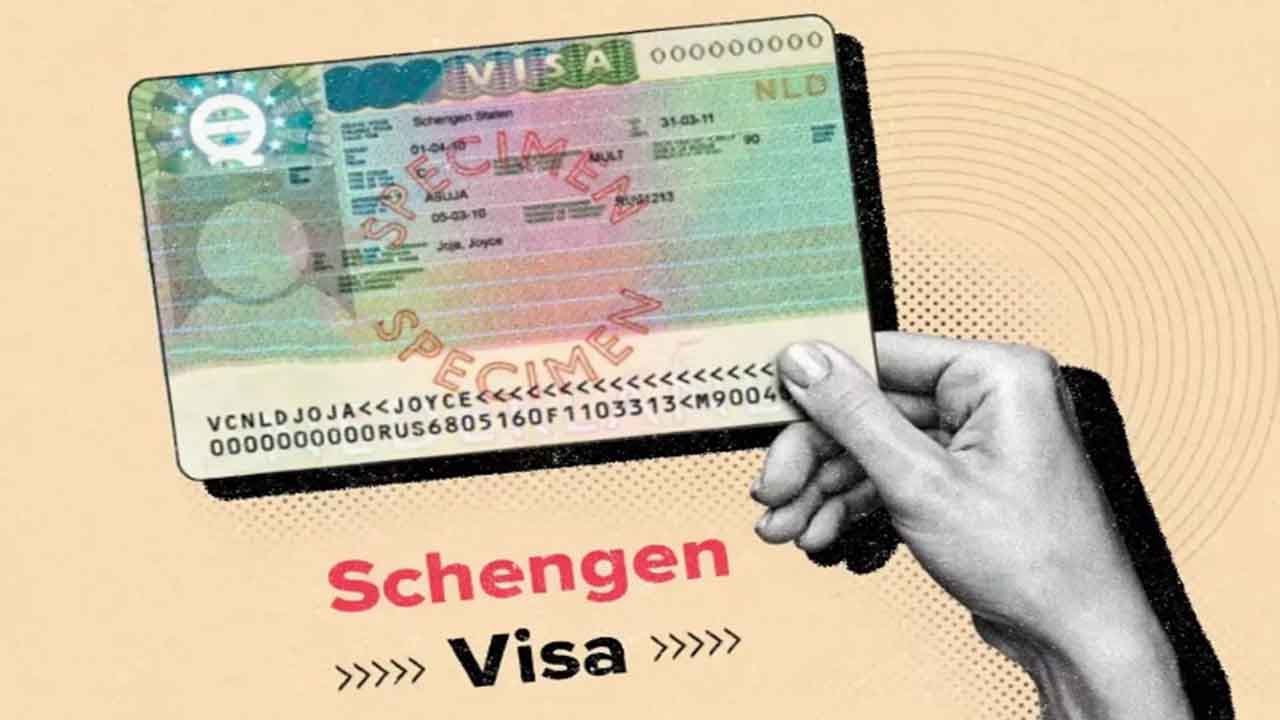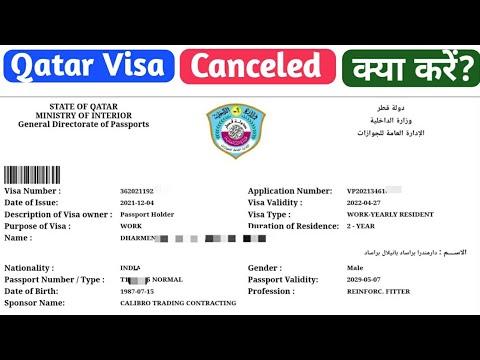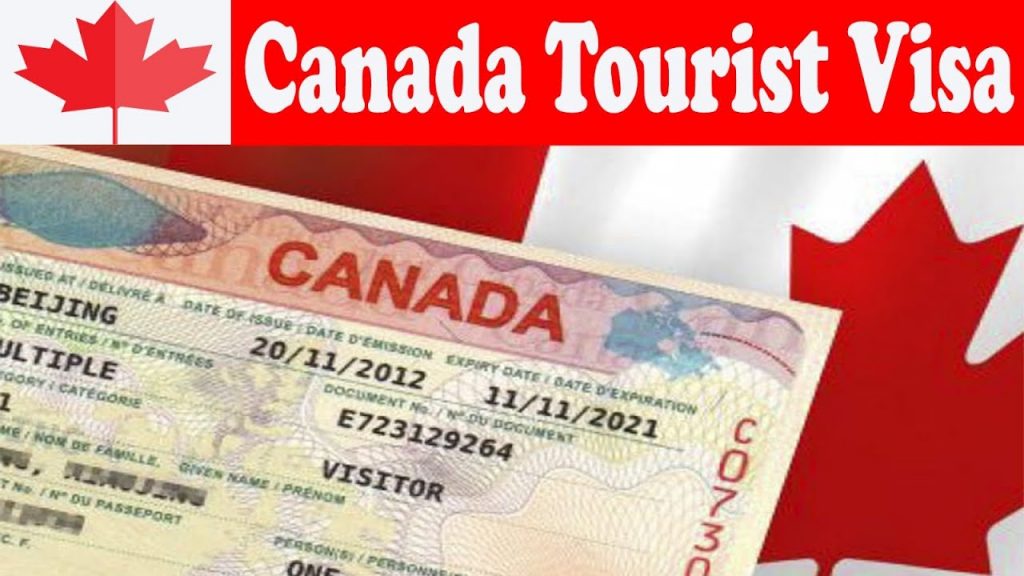Introduction: Why Saudi Arabia Beckons Global Talent
Saudi Arabia, a land of towering ambition and timeless tradition, is transforming at lightning speed. With Vision 2030 driving economic diversification, the Kingdom is a magnet for professionals in healthcare, engineering, IT, and beyond. Imagine tax-free salaries, modern cities like Riyadh and Jeddah, and a chance to immerse yourself in a culture where ancient heritage meets cutting-edge innovation. For many, a Saudi Arabia work visa is the key to unlocking this opportunity.
But what does it take to secure one? The process can seem daunting—sponsorship, document attestation, medical tests, and more. Fear not! This articles is, crafted with your search intent in mind, breaks down every detail of Saudi Arabia’s work visa requirements for 2025.
What Is a Saudi Arabia Work Visa?
A Saudi Arabia work visa, often called an employment visa, allows foreign nationals to live and work in the Kingdom under the kafala (sponsorship) system. Issued through a Saudi employer, it’s tied to a specific job and leads to a residency permit, known as an Iqama, which legalizes long-term stay and employment.
Key Features of the Work Visa
- Validity: Typically 1-2 years, renewable based on your contract.
- Purpose: Employment in sectors like oil and gas, healthcare, IT, education, or construction.
- Sponsorship: Requires a Saudi employer (company, individual, or organization) to sponsor you.
- Residency: Converts to an Iqama within 90 days of arrival, granting full residency rights.
- Restrictions: Work is permitted only for the sponsoring employer and specified role.
This visa aligns with Saudi Arabia’s goal to attract skilled workers while maintaining strict immigration control. It’s your gateway to a tax-free income—average salaries range from USD 3,000 to USD 15,000 monthly, depending on your role.
Who Is Eligible for a Saudi Arabia Work Visa?
Eligibility for a work visa hinges on a job offer and meeting Saudi Arabia’s regulatory standards. The Kingdom welcomes talent from nearly all nationalities, except Gulf Cooperation Council (GCC) citizens (UAE, Bahrain, Oman, Qatar, Kuwait), who enjoy visa-free entry.
General Eligibility Criteria
- Job Offer: A confirmed contract from a Saudi employer registered with the Ministry of Human Resources and Social Development (MHRSD).
- Age: Minimum 21 years; maximum 60 for most roles, with exceptions for highly skilled professionals.
- Health: Free of contagious diseases, verified by medical tests.
- Criminal Record: Clean police clearance from your home country.
- Qualifications: Relevant educational or professional credentials, attested by Saudi authorities.
- Professional Verification: For 23 technical fields (e.g., engineering, medicine), candidates from countries like India, Pakistan, Bangladesh, and Sri Lanka must pass a skills exam under the Professional Verification Scheme.
Priority Sectors
Saudi Arabia’s Vision 2030 prioritizes:
- Healthcare: Doctors, nurses, pharmacists.
- Engineering: Civil, mechanical, petroleum engineers.
- IT: Software developers, AI specialists.
- Education: Teachers, professors.
- Finance: Analysts, accountants.
Pro Tip: Indian applicants, the second-largest expatriate group in Saudi Arabia, face new pre-verification rules for qualifications starting 2025 to ensure workforce quality.
Saudi Arabia Work Visa Requirements in 2025
Securing a work visa requires meticulous preparation. Here’s a detailed breakdown of the documents and conditions you’ll need to meet.
1. Valid Passport
- Requirement: Valid for at least 6 months from your entry date, with 2 blank pages.
- Tip: Ensure no stamps from restricted countries (e.g., Israel, due to diplomatic policies).
2. Job Offer and Employment Contract
- Requirement: A signed contract certified by the Saudi Chamber of Commerce and Ministry of Foreign Affairs (MOFA). It must specify your role, salary, and contract duration.
- Details: Includes a sponsorship letter from your employer, stating your name, position, block visa number, and date, certified by MOFA.
3. Educational and Professional Qualifications
- Requirement: A certified, notarized copy of your university degree or technical diploma, authenticated by:
- Saudi Arabian Cultural Mission (SACM) in your home country.
- Saudi Embassy in the issuing country.
- For non-US degrees, additional certification by SACM and the Saudi Embassy.
- Verification: For technical roles, pass the Professional Verification Scheme exam if applicable.
4. Medical Examination
- Requirement: A medical report (3 copies) from an approved clinic, confirming you’re free of contagious diseases (HIV, hepatitis B/C, tuberculosis, malaria, syphilis).
- Details: Signed by a licensed physician with their license number and address. Includes lab results and 3 passport-sized photos (white background). Children under 16 are exempt.
- Cost: USD 50-100, depending on the clinic.
5. Police Clearance Certificate
- Requirement: A recent (within 6 months) report detailing your criminal record (or lack thereof), certified by your home country’s authorities and the Saudi Embassy.
- Tip: Start this early, as processing can take weeks.
6. Passport-Sized Photographs
- Requirement: 1 recent color photo (2×2 inches, white background, 5-100 KB, 80% face, no glasses, natural expression). Religious headwear is allowed.
7. Health Insurance
- Requirement: Mandatory coverage from a Saudi provider, often arranged by your employer.
- Cost: USD 100-300 annually, depending on the plan.
8. Visa Application Form
- Requirement: Completed online via the Saudi MOFA portal (Enjazit) with accurate personal and passport details.
- Tip: Print and sign the form, attaching your photo.
9. Visa Fees
- Requirement: Paid online via credit/debit card on the MOFA portal.
- Cost: Varies by employer’s Saudization rate (Nitaqat). Typically USD 100-200 for the visa, plus USD 175 (SAR 650) for Iqama issuance.
10. Biometric Data (if applicable)
- Requirement: Some applicants (e.g., UK residents) must provide fingerprints at a Tasheer Visa Center.
- Note: Check your local embassy for biometric rules.
How Much Does a Saudi Arabia Work Visa Cost?
The cost of a work visa depends on several factors, including employer contributions and your nationality. Here’s a breakdown for 2025.
Standard Fees
- Visa Processing Fee: USD 100-200, paid via the MOFA portal.
- Iqama Fee: SAR 650 (USD 175) annually, often employer-covered.
- Work Permit Fee: SAR 9,600 (USD 2,560) annually, typically paid by the employer under the Nitaqat system.
Additional Costs
- Medical Tests: USD 50-100.
- Document Attestation: USD 20-50 per document (e.g., degree, police clearance).
- Professional Verification Exam: USD 50-150 for applicable nationalities.
- Health Insurance: USD 100-300 annually.
- Travel Expenses: Flights to Saudi Arabia (USD 300-1,000, depending on origin).
Who Pays?
Under the kafala system, employers often cover visa, Iqama, and work permit fees. However, employees typically handle attestation, medical tests, and travel costs. Clarify this in your contract to avoid surprises.
Comparison: Compared to Kuwait (USD 1,060 for work permit) or UAE (USD 1,500+), Saudi Arabia’s fees are moderate, especially with employer sponsorship.
Step-by-Step Guide to Applying for a Saudi Work Visa
The application process involves coordination between you, your employer, and Saudi authorities. Here’s how it works in 2025.
Step 1: Secure a Job Offer
- Use platforms like Bayt.com, LinkedIn, or Saudi recruitment agencies.
- Sign a contract detailing your role, salary, and sponsorship terms.
Step 2: Employer Initiates the Process
- Your employer registers with the Ministry of Interior and opens an immigration file.
- They apply for a work visa with the Ministry of Labor, securing a visa authorization number from MOFA (1-2 weeks).
Step 3: Gather and Attest Documents
- Collect your passport, degree, police clearance, and medical report.
- Attest documents via your home country’s authorities, Saudi Embassy, and SACM.
- Complete the Professional Verification Scheme exam if required.
Step 4: Submit Visa Application
- Register on the Enjazit portal (www.enjazit.com.sa).
- Complete the application form, upload documents, and pay the fee.
- Submit your application in person or by mail to the nearest Saudi embassy/consulate (e.g., Washington DC: 601 New Hampshire Ave, NW, 20037).
Step 5: Await Approval
- Processing time: 1-3 weeks, depending on the embassy and document accuracy.
- Track your status on the Enjazit portal.
Step 6: Travel to Saudi Arabia
- Enter within 90 days of visa issuance.
- Carry your visa, contract, and supporting documents.
Step 7: Obtain Iqama
- Within 90 days, undergo local medical tests and fingerprinting.
- Your employer applies for your Iqama via the Ministry of Labor and Interior.
- Receive your Civil ID, proving legal residency.
Step 8: Start Working
- Begin your role, ensuring compliance with your visa’s job and employer restrictions.
Processing Time and Expedited Options
The entire process takes 3 weeks to 2 months, depending on:
- Employer efficiency.
- Embassy workload (e.g., Indian embassies process faster in Delhi vs. smaller cities).
- Document attestation delays.
Expedited Processing
- Some agencies (e.g., GulfVisa, Smith Stone Walters) offer faster services for USD 100-300.
- Employers with high Nitaqat ratings (medium green or above) may prioritize applications.
Tip: Apply early (2-3 months before your planned move) to avoid peak-season delays (e.g., post-Ramadan).
Insider Tips for a Successful Application
Navigating Saudi Arabia’s visa system requires strategy. Here are expert tips to stay ahead:
- Verify Your Employer: Ensure they’re registered and have a valid Commercial Register (CR). Unscrupulous sponsors can lead to delays or scams.
- Attest Early: Document legalization (degrees, police clearance) can take 4-6 weeks. Start as soon as you get a job offer.
- Use Approved Clinics: Medical tests must be from Saudi embassy-approved facilities to avoid rejections.
- Check Nitaqat Compliance: Your employer must meet Saudization quotas (e.g., hiring enough Saudi nationals) to sponsor visas.
- Save Digital Copies: Store scans of all documents in cloud storage for easy access at embassies or immigration.
Personal Story: A friend, an Indian engineer, faced a visa delay because his degree wasn’t attested properly. After weeks of back-and-forth, he learned to triple-check certifications with the Saudi Embassy. His lesson? Patience and precision pay off in the Kingdom!
Common Challenges and Solutions
Even with preparation, issues can arise. Here’s how to tackle them:
1. Document Rejections
- Cause: Unattested degrees or mismatched contract details.
- Solution: Use agencies like VisaHQ for attestation guidance. Verify contract terms with your employer.
2. Medical Test Failures
- Cause: Tests from unapproved clinics or undetected health issues.
- Solution: Confirm clinic credentials with your embassy. Schedule tests early to address any concerns.
3. Processing Delays
- Cause: Embassy backlogs or incomplete applications.
- Solution: Submit during quieter months (e.g., October-February). Track status weekly on Enjazit.
4. Employer Issues
- Cause: Non-compliant sponsors or miscommunication.
- Solution: Research your employer’s Nitaqat rating. Consult your embassy if disputes arise.
Life in Saudi Arabia: What to Expect as an Expat Worker
Your visa is just the start—here’s a glimpse of life in the Kingdom:
Work Environment
- Salaries: Tax-free, ranging from USD 3,000 (teachers) to USD 20,000+ (senior engineers).
- Hours: 8-hour days, 5-6 days a week, with overtime pay.
- Benefits: Housing, transport, or annual leave allowances are common.
Culture and Lifestyle
- Language: Arabic is official; English is widely used in workplaces.
- Dress Code: Modest attire (e.g., abayas for women in public, no shorts for men).
- Cuisine: Enjoy local dishes like kabsa or global fare in Riyadh’s restaurants.
Top Experiences
- Explore Al Rajhi Grand Mosque in Riyadh.
- Shop at Kingdom Centre Tower’s Sky Bridge.
- Visit Al Ula, a UNESCO site with ancient Nabataean ruins.
Extending or Transferring Your Work Visa
Extension
- Process: Your employer renews your Iqama before expiry, submitting updated contracts and medical tests.
- Cost: SAR 650 (USD 175) annually, plus work permit fees (employer-paid).
- Duration: Matches your contract (1-2 years).
Transferring Employers
- Rules: Allowed after employer consent. Requires a new work permit and Iqama.
- Cost: SAR 2,000-6,000 (USD 533-1,600), depending on transfer terms.
- Tip: Ensure legal release from your current sponsor to avoid bans.
Warning: Working on a visit visa or overstaying incurs fines (SAR 500/day) and possible deportation.
Video Guide: Saudi Work Visa Application
For a visual walkthrough, watch this YouTube tutorial on applying for a Saudi work visa:
Frequently Asked Questions (FAQs)
- Can I apply without a job offer?
No, employer sponsorship is mandatory under the kafala system.
- Is health insurance required?
Yes, it’s mandatory and often employer-provided. - Can I bring my family?
Yes, with a family visa, if your salary meets thresholds (e.g., SAR 5,000/month). - What if my application is rejected?
Review the reason (e.g., missing attestation) and reapply within 30 days. Consult your employer. - Are there age limits?
Generally 21-60, but exceptions apply for specialized roles.
Why Saudi Arabia? A Personal Reflection
Saudi Arabia isn’t just a job—it’s an adventure. I recall a colleague who moved to Jeddah as a nurse, expecting only a paycheck. Instead, she found a vibrant expat community, learned to love mandi dinners, and explored the Red Sea’s coral reefs. Her visa journey was a marathon of paperwork, but the reward? A life enriched by new perspectives. Whether you’re chasing career growth or cultural immersion, Saudi Arabia delivers.
Conclusion: Your Saudi Dream Awaits
The Saudi Arabia work visa, with costs starting at USD 100-200 plus employer-covered fees, opens doors to a thriving economy and rich culture. From attested degrees to medical tests, the requirements demand preparation, but the payoff—tax-free income and a front-row seat to Vision 2030—is worth it. Start by securing a job offer, gathering documents, and trusting the process.
Ready to take the leap? Visit www.enjazit.com.sa, connect with a reputable employer, and let Saudi Arabia’s opportunities unfold. Have questions or need guidance? Drop a comment below, and let’s make your Kingdom journey a reality!
